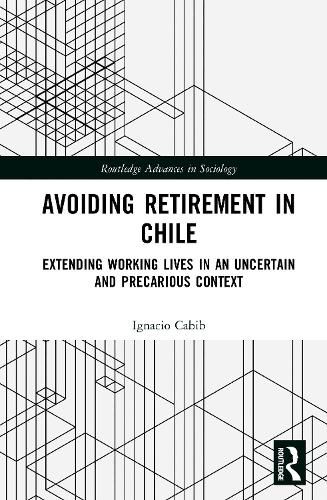Readings Newsletter
Become a Readings Member to make your shopping experience even easier.
Sign in or sign up for free!
You’re not far away from qualifying for FREE standard shipping within Australia
You’ve qualified for FREE standard shipping within Australia
The cart is loading…






Drawing on life-course, gender, and welfare regime theories, and relying on primary longitudinal qualitative data (life story interviews with 90 older workers) and primary longitudinal quantitative data (life course calendar surveys among 802 older individuals), Avoiding Retirement in Chile critically examines the generalizability of traditional age norms involving the transition to retirement, within a persistently uncertain and precarious setting.
Grounded in systematic empirical evidence, this study allows to reflect on the fact that a definitive and permanent exit from any form of economic activity is increasingly viewed as a fictional scenario by most older individuals. This arises not only from highly precarious social conditions but also from a complex process involving individual agency, wherein the status of being "retired" is progressively less voluntarily anticipated.
As such, it is of significant interest to a broad spectrum of undergraduate and graduate students, as well as scholars across various disciplines, including social sciences, economics, humanities, gerontology, public health, and social epidemiology. Additionally, the book targets policymakers and decision-makers engaged in topics such as aging, the labor market, pension systems, social and health inequality, and life-course determinants of disparities in old age.
$9.00 standard shipping within Australia
FREE standard shipping within Australia for orders over $100.00
Express & International shipping calculated at checkout
Drawing on life-course, gender, and welfare regime theories, and relying on primary longitudinal qualitative data (life story interviews with 90 older workers) and primary longitudinal quantitative data (life course calendar surveys among 802 older individuals), Avoiding Retirement in Chile critically examines the generalizability of traditional age norms involving the transition to retirement, within a persistently uncertain and precarious setting.
Grounded in systematic empirical evidence, this study allows to reflect on the fact that a definitive and permanent exit from any form of economic activity is increasingly viewed as a fictional scenario by most older individuals. This arises not only from highly precarious social conditions but also from a complex process involving individual agency, wherein the status of being "retired" is progressively less voluntarily anticipated.
As such, it is of significant interest to a broad spectrum of undergraduate and graduate students, as well as scholars across various disciplines, including social sciences, economics, humanities, gerontology, public health, and social epidemiology. Additionally, the book targets policymakers and decision-makers engaged in topics such as aging, the labor market, pension systems, social and health inequality, and life-course determinants of disparities in old age.